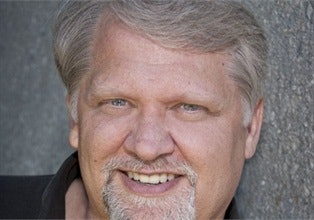 Photo: Kelly Bracken
Photo: Kelly Bracken
I recently read an article on the top five regrets of the dying, and it got me thinking.
As law enforcement officers, our mortality is not something that we like to necessarily dwell upon, even as the very nature of our work serves as a continual reminder of it. At best, most of us look to practice sound officer safety tactics, make sure that our life insurance policies are up-to-date, that our families will be provided for and, for the religious among us, that we are "right" with our maker.
But on the whole I have to wonder how many of us will likely find ourselves on the eve of our passing relating to Tolstoy's titular protagonist in "The Death of Ivan Ilyich": More than a little bewildered, frustrated, sad, and perhaps, even panicky.
If it is true that life is a terminal illness and death a sexually transmitted disease, then the job is perhaps as agreeable a distraction as is to be found in the workplace. Adherents of the "love what you do, and do what you love" philosophy would posit that it isn't even work and there are those who validate the claim by exhibiting an uncontested love for it. However, these people constitute the minority within our profession. Most of us are ultimately more beholden to our loved ones than something that requires us to don uniforms to display our fidelities.
Still, there is seemingly a disconnect, at least when it comes to reconciling people's priorities with their habits. When we reflect on what we actually observe throughout the courses of our careers, we see that an inordinate amount of time is spent in devotion to all manner of pursuits, be they vehicular, pedestrian, or extracurricular. We spend days and nights familiarizing ourselves with the histories and sordid habits of people that were it not for some professional interest we would never want to know, let alone associate with. We devote hours to studying this or getting familiar with that—all in the hopes of transferring here or promoting there. Even the less ambitious and driven can find themselves spending long stretches of time deprived of familial comforts due to exotic working hours or mandated overtime. It isn't just the hours involved. It is what happens during those hours, and how the officer experiences them throughout the course of his or her work shift.
All of this exacts a toll, both in the short- and long-term schemes of things. Sleep patterns are disrupted, immunity systems compromised. Law enforcement personnel are rendered vulnerable to all manner of emotional and physical setbacks.
Time spent in any given enterprise is invariably at the expense of another activity and no human being is exempt from this reality. As each of us theoretically recognizes as much, then why don't we do more to ensure that as much of our time is shared with those most important to us as possible?
Then there is the regret of those who had failed to be more honest in their feelings or maintaining friendships. While I have a history of displaying my emotions with an exhibitionist's zeal, I have failed in my ability to retain a majority of my friendships, in part because of those very emotions. And this I do regret.
There are things that I have wondered about such as those occasions when I found myself second-guessing a last second decision not to stop a car near the end of my shift: What might I have missed out on? Invariably, there is no answer to this question.
But I can pose a question to you for which there is a definite answer. How many times do you think I regretted spending time with my family? Zero. Zip. Nada. Even the arguments I have had with my wife are a testimony to our emotional investments in one another.
To be candid, if I am in the position to know my death is imminent, my state of mind will be very much like Ivan's in the Tolstoy story, despite my having long considered my mortality through secular eyes (and perhaps because of it). I will have one thing on him, though. I will not have squandered all manner of family time in pursuit of work.
Will you be able to say as much?
















